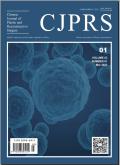Recent advances in scalable exosome production: Challenges and innovations
Chinese Journal of Plastic and Reconstructive Surgery
Pub Date : 2025-09-01
DOI:10.1016/j.cjprs.2025.05.001
引用次数: 0
Abstract
Exosomes, nanosized extracellular vesicles (30–150 nm), play a crucial role in intercellular communication and are promising biomarkers and therapeutic agents in oncology, neurodegenerative disorders, and immunotherapy. However, their widespread clinical adoption is constrained by challenges in scalable production, efficient purification, and regulatory standardization. This review critically evaluates recent advancements in exosome bioprocessing, including cell source optimization, culture refinement, and next-generation isolation technologies such as microfluidic microarrays and EXODUS systems. Additionally, we address the limitations of current exosome standardization efforts and propose harmonized protocols to enhance reproducibility. Future research should focus on integrating scalable bioreactor-based systems and artificial intelligence-driven quality control frameworks to accelerate exosome applications in precision medicine and regenerative therapy.
可扩展外泌体生产的最新进展:挑战和创新
外泌体是纳米大小的细胞外囊泡(30 - 150nm),在细胞间通讯中起着至关重要的作用,是肿瘤、神经退行性疾病和免疫治疗中有前途的生物标志物和治疗剂。然而,它们的广泛临床应用受到可扩展生产、高效净化和监管标准化方面的挑战的限制。这篇综述批判性地评估了外泌体生物处理的最新进展,包括细胞来源优化、培养改进和下一代分离技术,如微流控微阵列和EXODUS系统。此外,我们解决了当前外泌体标准化工作的局限性,并提出了协调的协议,以提高可重复性。未来的研究应集中在集成可扩展的基于生物反应器的系统和人工智能驱动的质量控制框架,以加速外泌体在精准医学和再生治疗中的应用。
本文章由计算机程序翻译,如有差异,请以英文原文为准。
求助全文
约1分钟内获得全文
求助全文
来源期刊

Chinese Journal of Plastic and Reconstructive Surgery
Surgery, Otorhinolaryngology and Facial Plastic Surgery, Pathology and Medical Technology, Transplantation
CiteScore
0.40
自引率
0.00%
发文量
115
审稿时长
55 days
 求助内容:
求助内容: 应助结果提醒方式:
应助结果提醒方式:


